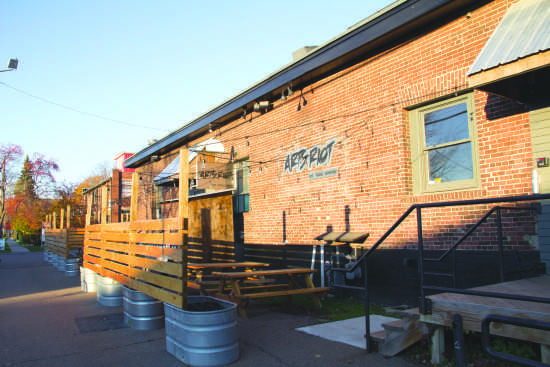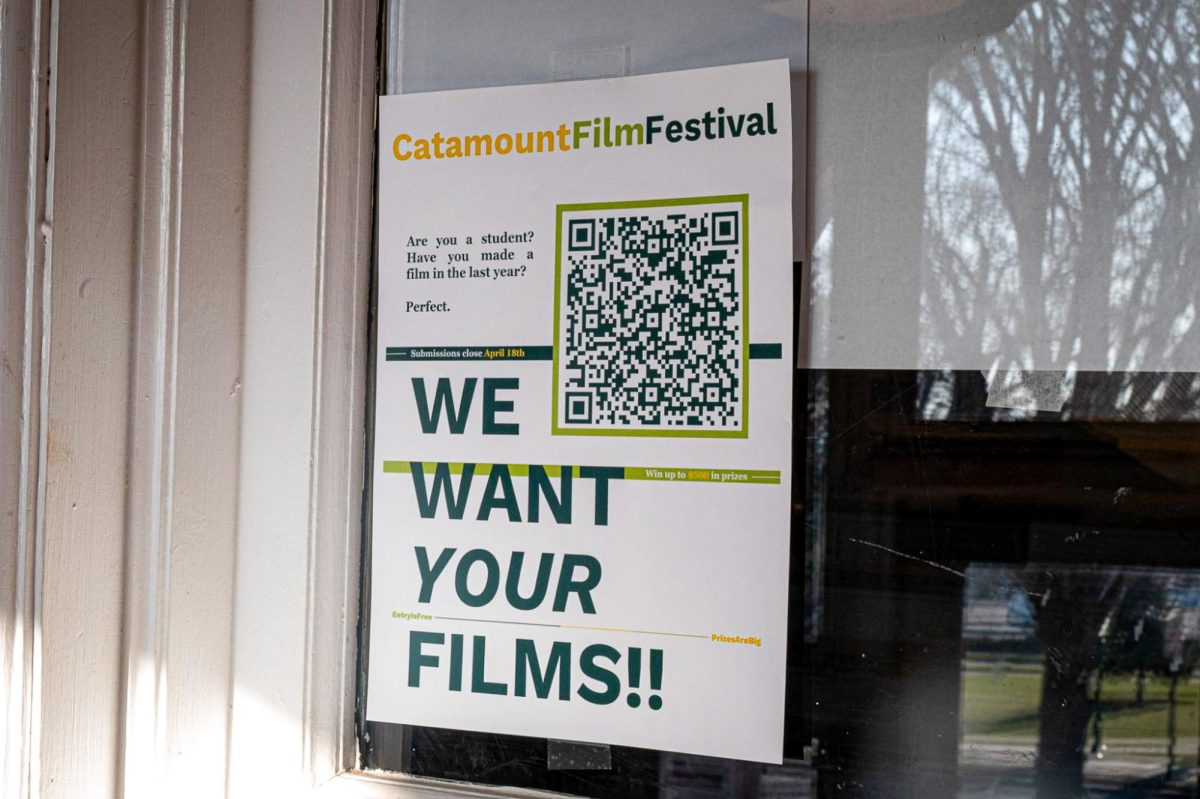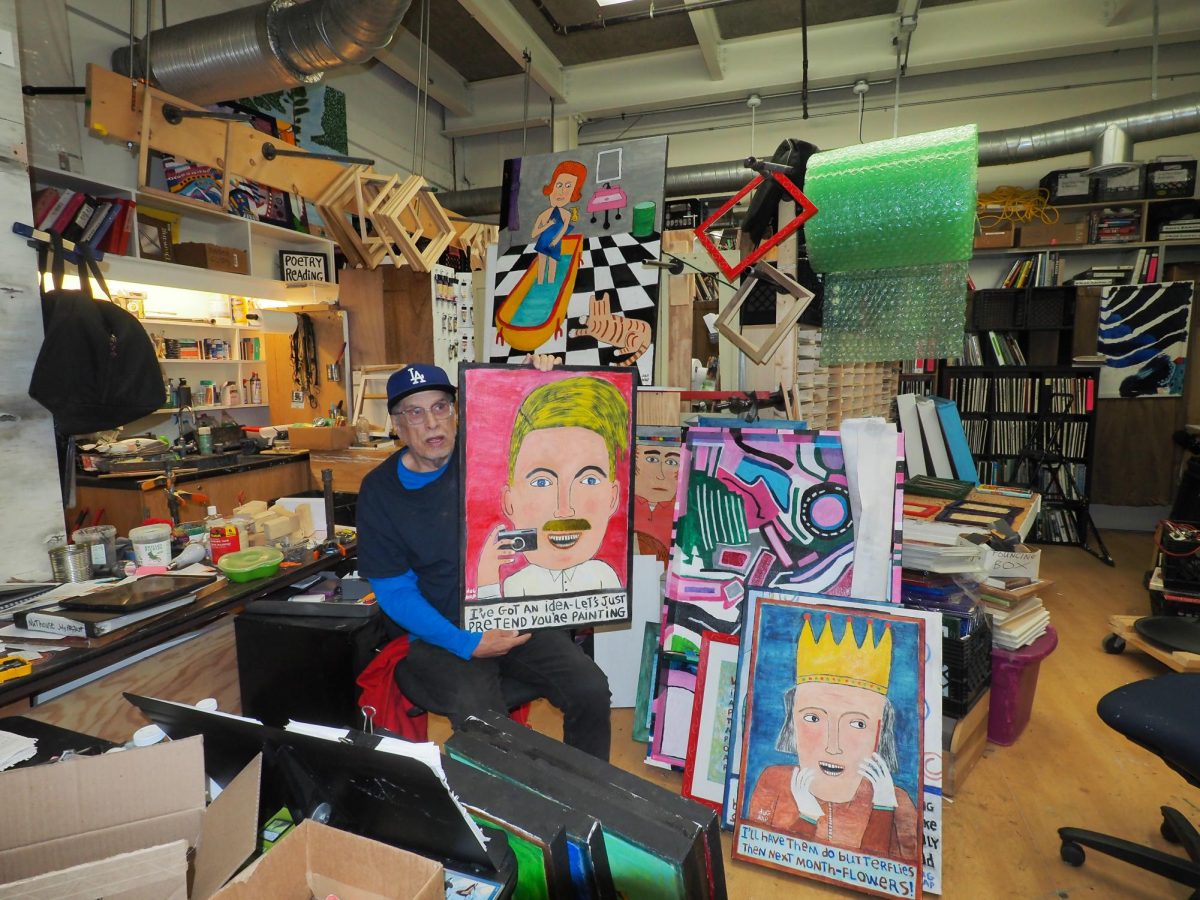
The construction of new housing in the South End has been delayed due to a resolution the Burlington City Council passed Oct. 26.
The new housing was going to go into the Enterprise Zone, a small portion of the South End that currently doesn’t allow for housing to be built in it. The decision to hold off on permitting housing in this zone was made because many people have expressed concern about the new housing.
City council members also felt this has distracted the city from planBTV South End, a draft proposal which includes the entire South End and not just the Enterprise Zone.
The zone is currently classified as an industrial zone, and does not permit housing to be built there, according to the website.
The Enterprise Zone is home to many artist studios and local businesses, including Arts Riot and Citizen Cider, according to the South End Alliance website.
Sharon Webster, a local artist who has rented a studio in the South End for the past 30 years, has been following the politics of possible new housing.
“I’ve enjoyed reasonable, affordable rent and I was fearful that if the housing came in then the zoning laws would change all that,” Webster said.
Mayor Miro Weinberger said in an Oct. 30 statement that he supports the Oct. 26 resolution passed by the city council.
Because the zone is marked as industrial and doesn’t permit housing, it has slowed gentrification there and allowed the arts and “entrepreneurial spirit” to flourish over the past two decades, Weinberger said.
This was possible because it was cheap to rent out a studio in the South End, Webster said.
“That’s the reality,” Webster said. “That’s what drew us all there.”
Joan Shannon, a city councilor representing the South District, was one of the sponsors of the resolution.
She said even if the resolution hadn’t passed, it wouldn’t necessarily mean that housing could be built in the Enterprise Zone; it would only indicate there was a “vision for housing” in the area.
“What this [resolution] says is that there’s not a consensus on that piece of the vision,” Shannon said.
wasn’t surprised that the Progressives got on board with the resolution because their constituents were the ones making the most noise about it.
“By taking it out, it’s not saying people don’t want housing in the Enterprise Zone,” she said. “Some people do, some people don’t. It’s just very controversial and it’s hard to look at the other pieces when you have this really controversial piece that’s taking everybody’s attention.”
Diane Gayer, director of the Vermont Design Institute, said the fact that housing has been taken out of the plan, as far as the city council is concerned, is important but it’s not the end of it.
“I went to a planning commission meeting the following night and I know the planning commission still held a discussion about housing because they sort of wanted to wrap their heads around it,” Gayer said. “The planning commission acts independently from the city council.”
Gayer said a few of the commission members understood there’s an important role for the city to play in keeping the Enterprise Zone an innovation center for Burlington.
Shannon said what was being proposed in the Enterprise Zone was really artists’ housing as a way to support some artists’ fees in the Enterprise Zone and it was the artists who objected to it.
“So why really push on this piece when the people that it is intended to serve are the people that are objecting to it?” Shannon said.
When this plan was first proposed, the art community reached out by talking to industry in the Enterprise Zone, Gayer said.
Gayer said the city didn’t listen when people started speaking in opposition to the plan.
“Part of why it became as visible and dynamic as it did is because the city didn’t want to give us voices,” Gayer said.
As a social worker, Webster does think that housing needs to be addressed, she said.
However, she said the Enterprise Zone is so small that excluding the housing from the five or six streets which make up the district won’t limit anyone’s housing opportunities.
“My feelings are that it is equally important to have housing in our community, but just not there,” Webster said. “For me, I haven’t heard as many artists recognize that people do need a place to live so I want to make a point.”







